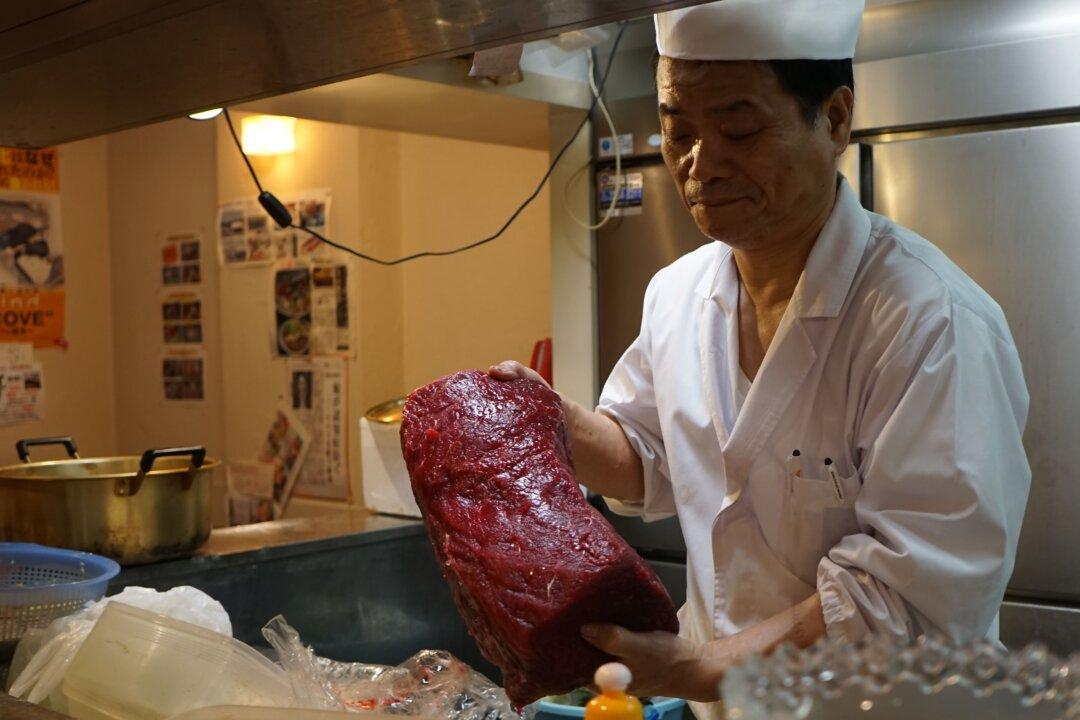TOKYO—Chunks of meat from the first whales caught since Japan resumed commercial whaling this week fetched “celebration prices” at auction on July 4.
The fresh meat sold for up to 15,000 yen ($140) per kilogram (2.2 pounds), several times higher than the prices paid for Antarctic minkes, at a wholesale market in Sendai, one of several cities on Japan’s northern coasts to hold the auction.





